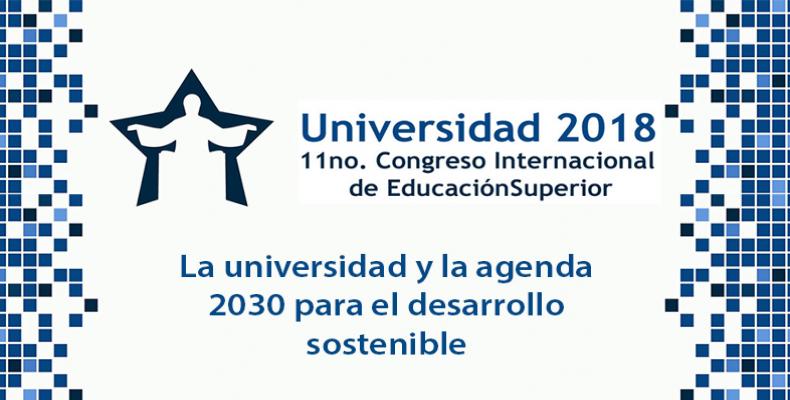Havana, February 6 (RHC)-- More than 2,000 international participants from 60 countries, and more than 500 Cuban researchers, are set to attend Universidad 2018 in the Cuban capital -- from February 12th through the 16th.
Faced with the challenges of meeting the goals of the 2030 Agenda for Sustainable Development in the education sector, and in the context of the centennial of the Argentine university reform of 1918, Cuba will once again host researchers, academics and university professors, at the 11th International Congress of Higher Education, Universidad 2018, which will take place at Havana’s International Conference Center.
Providing a space to share knowledge and exchange between different higher education institutions from around the world, the slogan for this year’s Congress is “The University and the 2030 Agenda for Sustainable Development.” This is one of the main regional events in the field, according to Cuban Minister of Higher Education José Ramón Saborido Loidi, not only because of the high number of participants and the quality of the works presented, but because of the novel themes that are discussed.
More than 2,000 international participants from 60 countries, and more than 500 Cuban researchers, are set to attend Universidad 2018. The event will also see the attendance of Education ministers and deputy ministers, public policy secretaries, more than 300 rectors of some of the leading universities in the world, directors of international organizations and academic networks, and more than 100 speakers, according to María Victoria Villavicencio Plasencia, director of International Relations of the Ministry of Higher Education.
Speaking during a press conference on Monday, February 5, she noted that among the main personalities to participate will be the Argentinian political scientist Atilio Borón; Spanish journalist Ignacio Ramonet; General Secretary of the Organization of Ibero-American States for Education, Science and Culture, Paulo Speller; and David Atchoarena, director of the Division for Policies and Lifelong Learning Systems at UNESCO, among others.
Higher Education and the 2030 Agenda to be Discussed in Havana

Rilataj Artikoloj
Komentarioj
Lasu komentarion
Ĉiuj kampoj bezonatasPliaj Vidaĵoj
- Fruktodona kaj solidara kontribuo de kubaj kuracistoj en Meksiko
- Kubo postulis ĉeson de genocido kaj reasertis solidarecon al Palestino
- Renkontiĝo de kubanoj en Panamo rifuzas usonan sieĝon al Kubo
- Kubo konfirmas sindevontigon por nuklea malarmado
- Kuba prezidento finis laborviziton al la centra provinco Villa Clara

